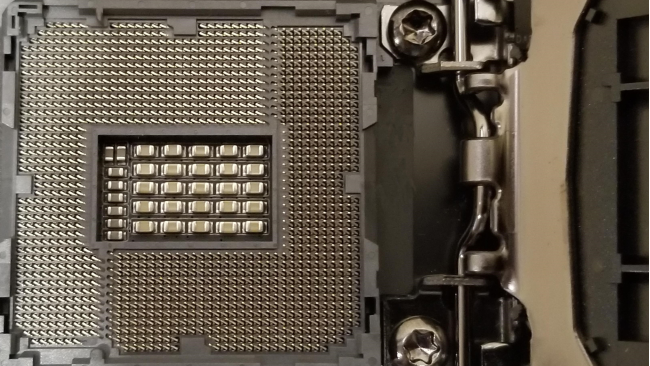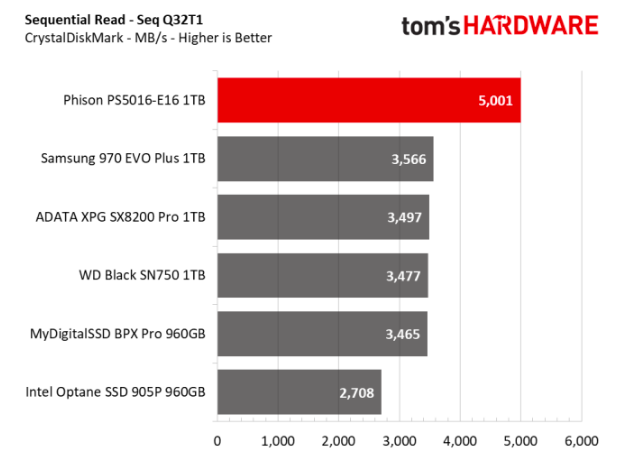One step forward, one step back.
The transition to 10nm doesn't appear to be Intel's only problem: According to multiple sources we spoke to at CES 2020, many upcoming Socket 1200 motherboards will support PCIe 4.0, but Intel encountered problems implementing the feature with the Comet Lake chipset, so Socket 1200 motherboards will only support PCIe 3.0 signaling rates when they come to market.
Intel's difficulty transitioning to the 10nm manufacturing process has hindered its ability to move to newer architectures, but it has also led to slower transitions to other new technologies, like PCIe 4.0. That's proven to be a liability as AMD has plowed forward with a lineup of chips spanning from desktops to the data center that support the new interface, giving it an uncontested leadership position in I/O connectivity with twice the available bandwidth for attached devices.
Intel, on the other hand, remains mired on its 14nm chips and a long string of Skylake-derivatives. And while we've assumed the company wouldn't move forward to PCIe 4.0 until it moved to a new microarchitecture, we were told by several independent sources, which requested anonymity, that Intel intended to add support for the interface with the Comet Lake platform. As a result, most iterations of Socket 1200 motherboards currently have the necessary componentry, like redrivers and external clock generators, to enable the feature.
The PCIe 4.0 interface comes with twice the bandwidth of PCIe 3.0, but that also comes along with tighter signal integrity requirements. Unfortunately, Intel reportedly ran into issues with the chipset and untenable amounts of jitter (we're told the Comet Lake processors themselves are fine), thus requiring cost-adding external clock generators to bring the interface into compliance. In either case, the issues reportedly led Intel to cancel PCIe 4.0 support on the Comet Lake platform.
We're told that some motherboards could still come to market with the PCIe 4.0-enabling components in the hopes that Intel will allow the next-gen Rocket Lake processors, which will drop into the same socket, to support the feature on motherboards with the chipset. However, given that Intel isn't known for allowing full backward compatibility with previous-gen chipsets, that's up in the air.
Socket 1200 motherboards are already in the final stages of development, but it is possible that some vendors could nix support for the interface entirely to reduce costs, or adjust the value-centric portions of their product stack to remove the expensive components.
As expected, Comet Lake processors will come with up to ten cores and are largely a scaled-up version of Coffee Lake, but Intel also increased the recommended Tau duration (the amount of time the chip spends in PL2 boost states) from 28 seconds to 56 seconds. The chips also have a 127W PL1 (power level 1) and 250W PL2, which also necessitate beefier power delivery subsystems that will result in higher-priced motherboards, particularly on the low end. You'll also have to pay for PCIe 4.0 support on high-end motherboards, while it doesn't appear there will be any support for the interface--at least in this generation.
Due to Intel's standard policy of allowing motherboard vendors to adjust the Tau duration, we could see some lower-end Z490 motherboards adjusted to the previous 28-second duration in a bid to reduce the cost of power delivery components. And naturally, some lower-end boards could come without support for the PCIe 4.0 interface as an additional cost-saving measure. However, motherboard vendors are already in the final stages of development and have other projects inbound, like AMD's B550 motherboards that we're told will release at Computex 2020. So we'll likely see the circuitry for PCIe 4.0 support remain on the majority of Socket 1200 motherboards, meaning you'll have to pay extra regardless of whether you'll ever be able to buy a CPU that you can drop in to support the extra bandwidth.
For now, Intel's challenges with the PCIe 4.0 interface appear unsolved, which unfortunately leads to slower industry adoption and development of the supporting components, like the Phison PCIe 4.0 SSD in the chart above. Next-gen SSDs that will saturate the interface with 7,000 MBps of throughput are already on the way to market, but Intel's customers won't have access to those types of speeds, not to mention the full benefits of the faster interface with PCIe 4.0 GPUs.
According to our sources, the Comet Lake platform supports DDR4-2933, Thermal Velocity Boost, and comes with UHD 630 (though we could see a rebrand to UHD 730). Apparently the difficulties with the PCIe interface, among other unspecified challenges, led Intel to delay Comet Lake from its original planned launch at CES 2020. Comet Lake is now scheduled to launch in mid-April, so we'll have to wait until then to see the impact of the changes.
SOURCE:Paper.li





Comments